Life
Sign up for our newsletter
We summarize the week's scientific breakthroughs every Thursday.
-
 Plants
PlantsThe art and science of the hedgerow
Spiky hawthorn trees have found many uses despite their unforgiving nature, Bill Vaughn writes in ‘Hawthorn.’
By Nathan Seppa -
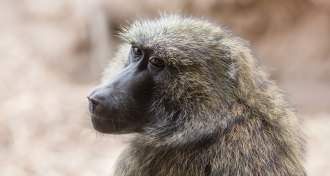 Psychology
PsychologyQuantity counts for baboons
Counting-like logic helps baboons track and compare accumulating sets of peanuts.
By Bruce Bower -
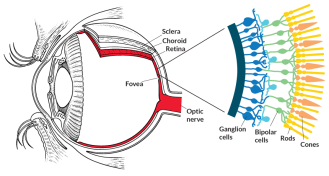 Genetics
GeneticsHow to rewire the eye
The cutting-edge technology called optogenetics may offer a workaround to partially restore vision even after the retina’s light-sensing rods and cones die.
-
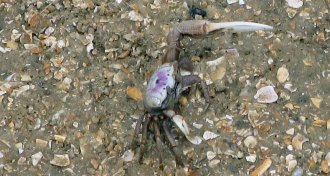 Animals
AnimalsA summer challenge: Observe nature
Opportunities for observing nature are plentiful, no matter where you live.
-
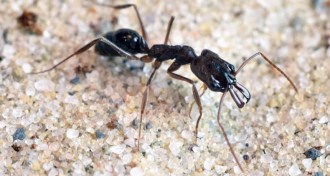 Animals
AnimalsAnts snap jaws, shoot skyward, escape death
Emergency trap jaw launchings help some ants pass death tests.
By Susan Milius -
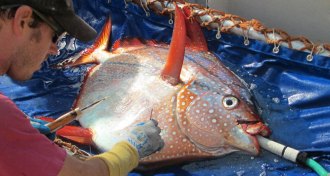 Animals
AnimalsDeepwater dweller is first known warm-hearted fish
The opah, a deep-diving fish, can keep much of its body warmer than its surroundings, making it similar to warm-blooded birds and mammals.
By Susan Milius -
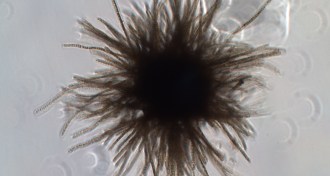 Oceans
OceansMysterious form of phosphorus explained
Mysterious form of phosphorus may be used as shadow currency by marine microbes, potentially upending scientists’ understanding of nutrient exchanges.
By Beth Mole -
 Science & Society
Science & SocietyThe Dress divided the Internet, but it’s really about subtraction
People really do see different colors in the same photo of a dress, suggesting that our internal models shape color perception far more than has been recognized.
-
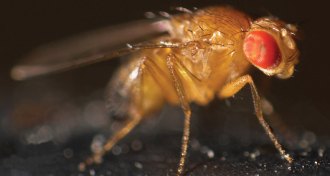 Neuroscience
NeuroscienceFruit flies flee from shadows
Studying flies’ responses to an ominous shadow may lead to a deeper understanding of humans’ emotions.
-
 Animals
AnimalsEarly research asked whether cats dream
Early research asked whether cats dream; researchers still don’t know definitively.
-
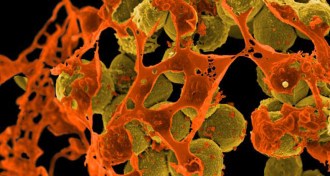 Genetics
GeneticsQuicker sepsis diagnosis may be a step closer
Identifying genes linked with sepsis may make it possible to develop a blood test to diagnose the infection days sooner than current methods.
-
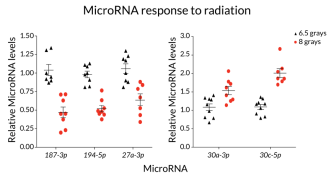 Genetics
GeneticsMicroRNAs track radiation doses
MicroRNAs in the blood may indicate radiation damage, a study of mice finds.